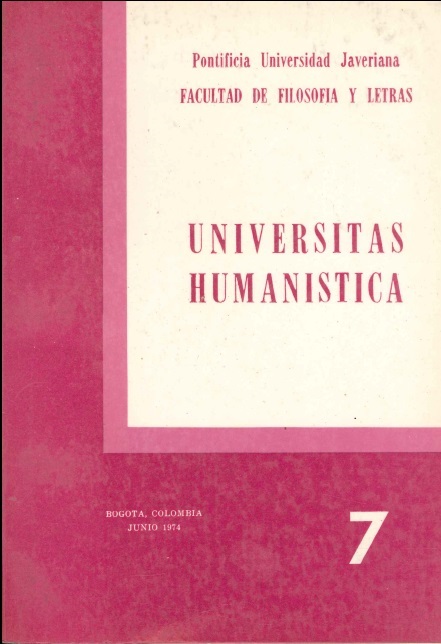Abstract
En el presente trabajo voy a exponer los hechos relativos a la rebelión peruana de 1780. Analizo en primer lugar las causas de la revuelta y los ideales de Túpac Amaru, quien buscaba defender los derechos de los indios mediante la supresión de la encomienda, mita, corregimientos, repartos y obrajes, instituciones coloniales que oprimían la raza indígena.
Expongo a continuación los sucesos de la rebelión de Tinta, sus relaciones con otros movimientos revolucionarios peruanos y el .proceso de pacificación emprendido por los españoles. Planteo las consecuencias de la revuelta como la abolición "dé los repartos, la creación de régimen de Intendencias y el establecimiento de la Audiencia del Cuzco. Al final, integro los planteamientos de algunos historiadores sobre las motivaciones y finalidades de Túpac Amaru, para concluir que el Inca buscaba conjuntamente la defensa de los derechos de su raza y de la ley monárquica siguiendo un claro ideal de justicia social. Su movimiento revolucionario pretendía modificar .el sistema administrativo pero no buscaba cambios políticos radicales ni tenía intenciones separatistas. Con respecto-a sus discutidos alcances independentistas veremos que la rebelión dé Túpac Amaru y los movimientos americanos de independencia seguían móviles diferentes.

This journal provides immediate open access to its content on the principle that making research freely available to the public, encourages greater global exchange of knowledge.
The journal Universitas Humanística is registered under a Creative Commons Attribution 4.0 International Public License. Thus, this work may be reproduced, distributed, and publicly shared in digital format, as long as the names of the authors and Pontificia Universidad Javeriana are acknowledged. Others are allowed to quote, adapt, transform, auto-archive, republish, and create based on this material, for any purpose (even commercial ones), provided the authorship is duly acknowledged, a link to the original work is provided, and it is specified if changes have been made. Pontificia Universidad Javeriana does not hold the rights of published works and the authors are solely responsible for the contents of their works; they keep the moral, intellectual, privacy, and publicity rights.
Approving the intervention of the work (review, copy-editing, translation, layout) and the following outreach, are granted through an use license and not through an assignment of rights. This means the journal and Pontificia Universidad Javeriana cannot be held responsible for any ethical malpractice by the authors. As a consequence of the protection granted by the use license, the journal is not required to publish recantations or modify information already published, unless the errata stems from the editorial management process. Publishing contents in this journal does not generate royalties for contributors.


